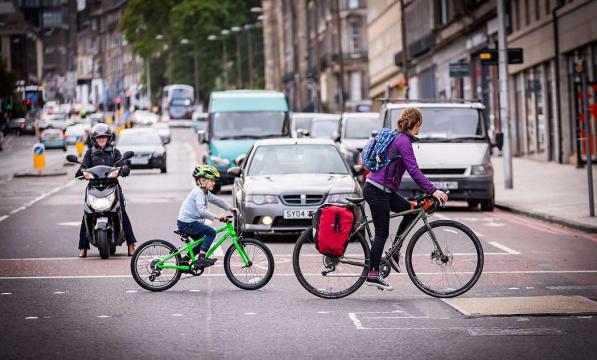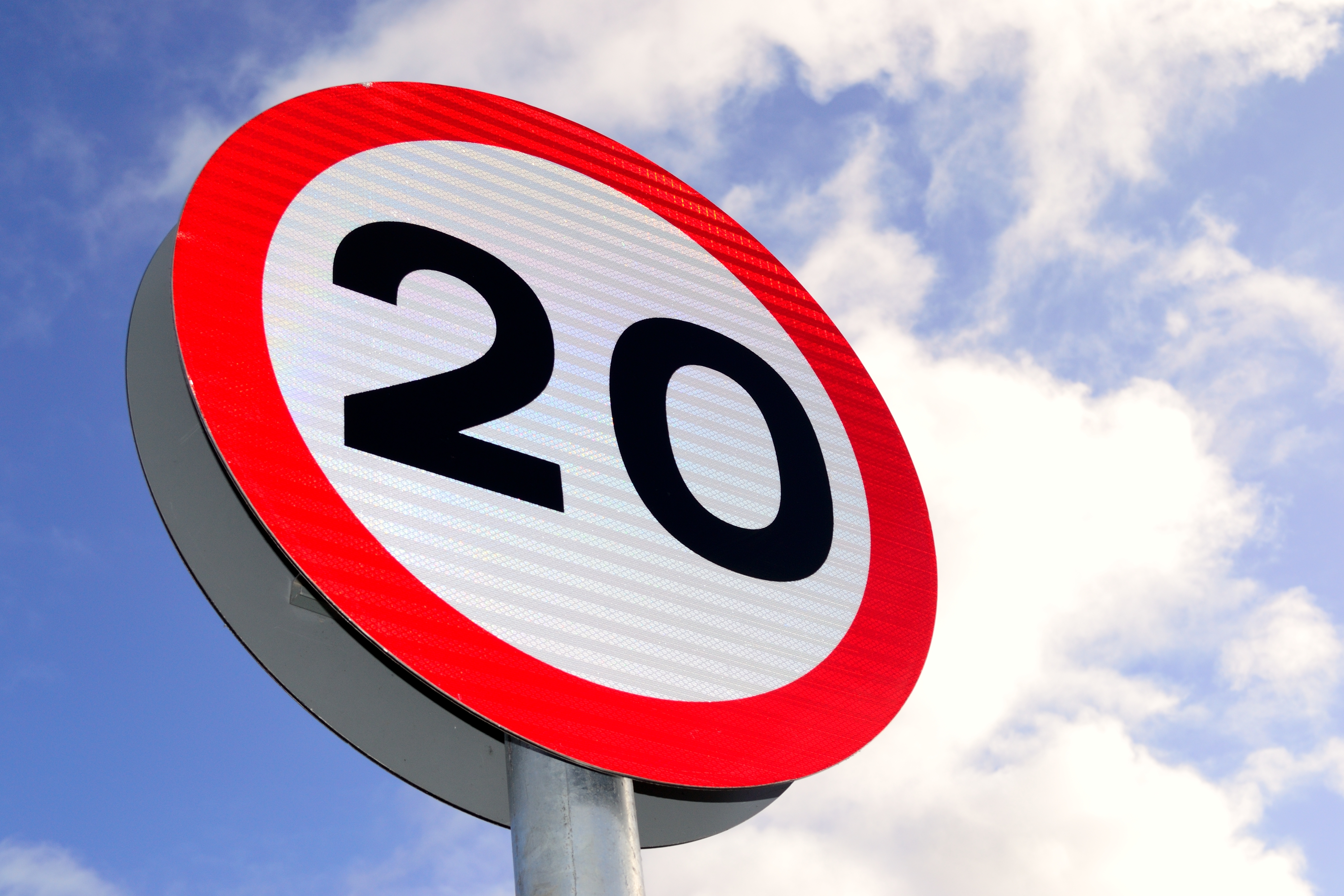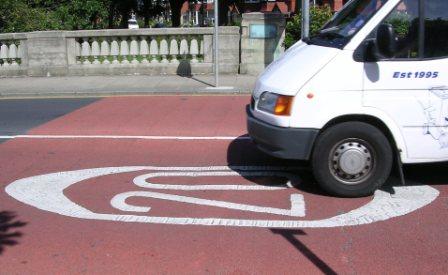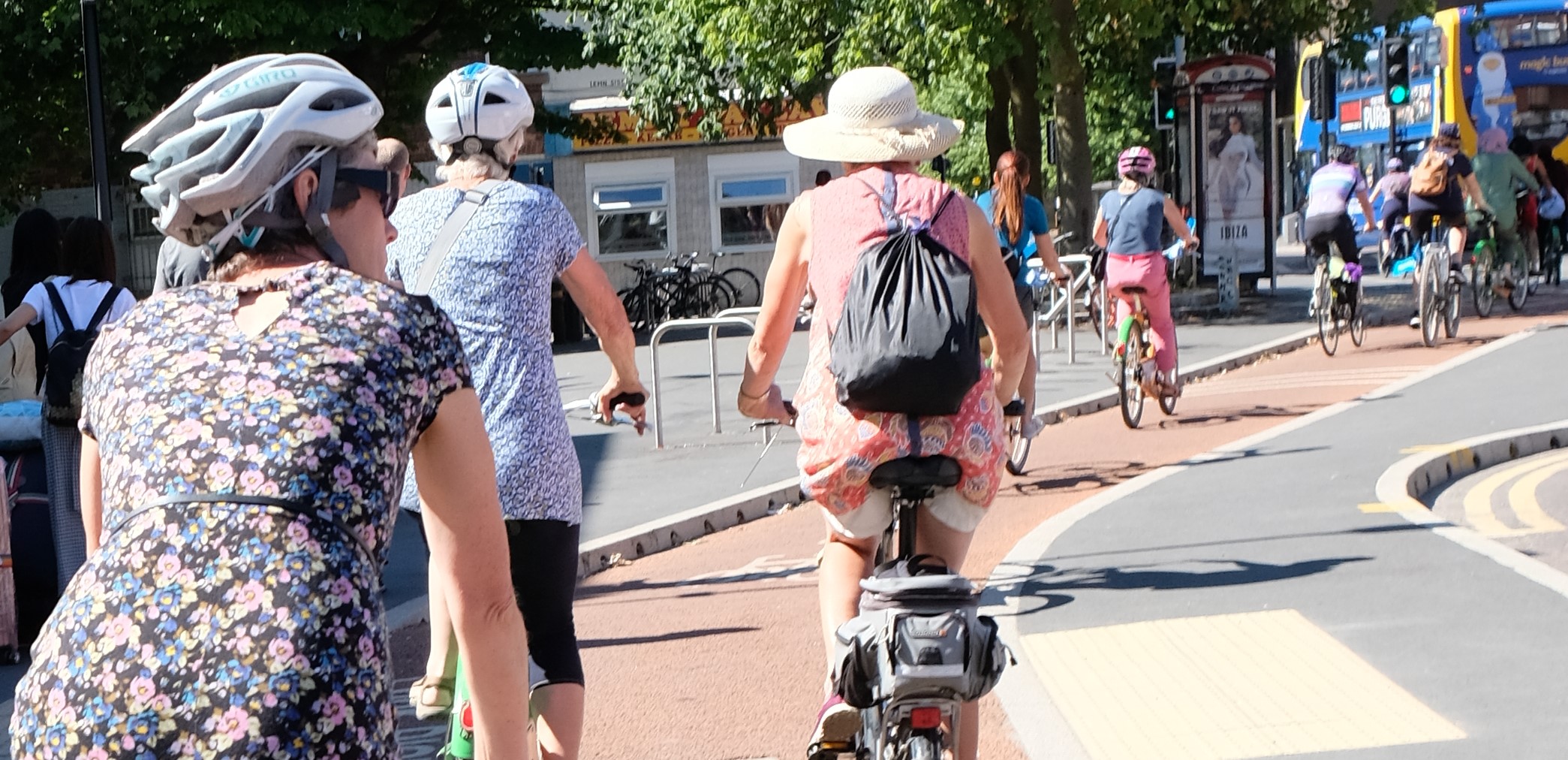Why the Scottish Parliament must support 20 mph for local streets

Even if we’re not all experts in the laws of physics, most of us know instinctively that if someone’s hit by a motor vehicle – an object of much greater mass travelling at a higher speed – they’re far more likely to be hurt than anyone inside it; that the faster it’s going, the less time there is for evasive action and the more severe any injuries will probably be.
Of all settings where motor vehicles and vulnerable bodies routinely mix, local streets are surely not the places to fear – or, worse, witness – these laws in action. They’re where you want to feel comfortable, happy and protected from harm.
Why on Earth, then, did anyone ever think it was a good idea to let great big metal objects shoot past front doors or through busy public spaces at 30 mph?
Even stranger, why do some people with the power to lop off 10 mph right now hang back? Don’t they want the streets where people live, socialise, work, walk and (wish to) cycle, where neighbours like chatting and children long to play, to feel and be safer and friendlier?
In other words, why aren’t all members of the Scottish Parliament intent upon voting in favour of Green MSP (Member of the Scottish Parliament) Mark Ruskell’s Bill to make it unlawful “… for a person to drive a motor vehicle on a restricted road at a speed exceeding 20 miles per hour”?
If you’re wondering what ‘restricted’ roads are, they are the sort of streets I’ve mentioned above or, to be more technical, those lit with streetlamps no more than 185m apart.
Why did anyone ever think it was a good idea to let great big metal objects shoot past front doors or through busy public spaces at 30 mph?
Ministerial resistance
Sadly, there is a very real risk that Scotland’s Transport Minister, Michael Matheson MSP and the Scottish National Party (SNP) will not back Mark Ruskell’s Bill. We know this from the response he sent to an open letter signed by a range of pro-20 mph charities, academics, representatives from the health sector and campaigners, including Cycling UK and Sustrans.
While agreeing that 20 mph is of particular benefit to disadvantaged areas and communities from a road safety and health perspective, the Minister says that the Bill would divert precious resources away from existing road safety activity. Clearly, he is not as convinced as he might be by the benefits of 20 mph.
Why not? The First Minister of Wales, Mark Drakeford AM, needs no convincing. Answering a recent question from David Melding AM, he confirmed that “The Welsh Government believe that 20 mph should be the default speed limit for residential areas.”
20 mph qualms answered
To be fair, Michael Matheson MSP’s reservations are not unheard of – especially the concern that changing a speed limit does not guarantee that actual vehicle speeds will drop. But this is no reason for rejecting 20 mph:
- A 20 mph limit would give the police the unambiguous legal backing they need to intercept and, if necessary, charge, the minority of drivers who persist in travelling dangerously fast through a community environment.
- It’s true that in some streets average speeds are not much above 24 mph anyway, but even small decreases can reduce crash severity (and, as mentioned, some drivers exceed the average by a wide margin).
- Where speed restrictions alone prove not enough to change behaviour, because the street still looks as if driving above 20 mph is excusable, councils can alter its feel by redesigning it. Furniture, planters, trees and new (cycle-friendly) surfacing may be all that’s needed to impress on drivers that they are guests in a street and a low, respectful speed is credible. They look nice too.
- Traditional (and costly) traffic calming such as speed humps and chicanes may be necessary on only a few roads where non-compliance persists.
- The Bill would still allow local authorities the discretion to designate some roads in built-up areas for a 30 mph (or higher) limit where appropriate (on ‘through routes’, for instance).
- Temporary exemptions could also apply to streets that should ideally become 20 mph in time, but where typical existing speeds are nearer to or above 30 mph and won’t change overnight. In such roads, lower speeds are less likely to be credible until and unless wider design changes are introduced.
- 20 mph limits are in with an even better chance of success if backed up by education, enforcement, plus good community engagement.
Cycling UK therefore believes that voting against the Bill would be short sighted, compromise road safety for everyone, and squander a golden opportunity to change how we think about the purpose of and traffic through local streets.
The will of the public
If it fails, it would be a blow for the 24 Community Councils and 62% of the people in Scotland who responded to the public consultation and said ‘yes’ to its principles - a level of support for 20 mph in residential streets that is reflected across Britain.
Goodbye complexity and patchiness
Apart from reflecting the will of the public, local authorities have much to gain from this Bill too. With 20 mph the default speed limit in most urban and residential roads, they would no longer face the complex and time-consuming Traffic Regulation Order (TRO) process involved in reducing limits from 30 mph; or have to buy lots of expensive and cluttering signage to mark them.
What’s more, 20 mph would be the norm for local streets – so no more confusing, inconsistent patchiness.
Sixty lives
Most compelling of all, though, is this: campaigners in Scotland have estimated that, had the Bill been introduced twenty years ago when the Scottish Parliament was founded, it may well have saved around 60 lives. Repeat: 60 lives.
Had the Bill been introduced twenty years ago when the Scottish Parliament was founded, it may well have saved around 60 lives.





